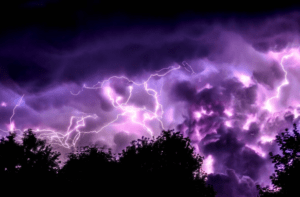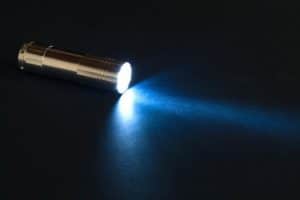
There’s no such thing as being too prepared! Here are ten reasons why you need to invest in a standby, whole house generator.
It’s the middle of the night. You’re awakened by monstrous thunder overhead and your children diving into your bed for safety. A flash of lightning and your house loses all power.
Now what? Well, in most scenarios, you go back to bed and hope the power is back on by morning.
But what if it isn’t?
For that matter, what if a power outage is so severe your house loses power for days or weeks?
Will you and your family be okay? Depending on where you live, you may depend on power for heat, for survival.
Are you prepared?
Keep reading for our top 10 reasons why you need a whole house generator!
1. Protect Perishables
During a power outage, you never know exactly how long you’ll be without power.
This can be problematic as most of our food requires being chilled. Much of the cold air kept in a fridge is replaced with warm air when you open the door.
Therefore, you’ll only get a couple of chances to open the door before your food starts getting warm. Food starts going bad after two hours of being warm.
With a whole house generator, you won’t have to worry about losing otherwise good food to warm air.
2. Security
Many of us own security systems for our home. They give us a sense of peace about the safety and security of our family.
However, when the power goes out, so does the security system. Unfortunately, this is a time when burglars seek to take advantage of our misfortunes, especially if they suspect no one is home.
Having a standby whole house generator will keep your security system running with barely a hiccup.
3. Lighting

Source: http://www.safebee.com
For children, a power outage is frightening on multiple levels. First, especially during thunderstorms, it’s loud and disorienting. Big booms of thunder and flashes of lightning can be incredibly frightening to kids.
Second, the lights fail. This is the darkest the kids have ever seen the house. The absence of light can turn their home into a nightmare in an instant.
A whole house generator will automatically turn on in the event of a power outage, day or night. Your kids won’t have to worry about monsters and you won’t have to worry about scrambling around to find flashlights, candles, and matches.
4. Well-Water Retrieval and Sump-Pump Function
If you live in a house that draws water from a well and uses a sump-pump, you really shouldn’t be without power for long.
First, without electricity, you won’t have a working pump to pull well-water automatically into your house. Depending on your other sources of water, how many days you’re without power, and how hot it is outside, you may have a serious problem on your hands.
Secondly, a sump-pump also requires electricity to run. If the power goes out, especially during heavy rainfall, your sump-pump won’t be functioning to keep your basement or crawl space from flooding.
Whole house generators are designed to keep everything running in your house, especially devices for critical systems.
5. Protection from the Elements
One of the worst times to lose power is in the middle of winter or summer, depending on your climate.
Imagine a power outage while it’s negative 10 degrees outside. How long do you think your house will stay warm without your furnace working? Those with a wood stove would be fine, but most people don’t have wood stoves.
Alternatively, imagine living in Texas or Arizona and losing power in the middle of the summer. Heat stroke can happen faster than you think. About 20 years ago, Chicago had such a bad heat wave that over 800 people died.
A whole house generator will keep your family in a sustainable and safe temperature, regardless of how long the power outage lasts.
6. Safety and Longevity
Whole house generators are much safer than portable generators. Portable generators emit carbon monoxide in dangerous amounts very quickly. They must not be anywhere near open doors or windows to your home.
Because carbon monoxide is odorless, you often won’t know you’re breathing it in until it’s too late.
Additionally, portable generators are not meant to be operated out in the rain, snow, or wet conditions.
Whole house generators are made to work safely no matter the conditions and for long periods at a time. Note, following the general safety guidelines will make your generator even safer.
7. Working from Home

Source: https://www.gethow.org
If you have a job working from home, you can’t afford to miss a few days work just because your power goes out.
Whole house generators will keep your lights on, the computer charged, and the internet working. You can work and live like you would any other day.
8. Contact with the Outside
One of the most important things whole house generators offer is the ability to continuously communicate with the outside world and call for help if necessary.
In an extreme situation, it’s important to be able to understand if help is coming and what the extent of the damage is. These questions are important to help you survive. They will help you determine if you need to evacuate or stay put.
9. Peace of Mind
If nothing else, having a backup generator will give you incredible peace of mind. Even if the power outage is going to last for weeks, you, unlike others, will be able to calmly and cooly make plans while in the comfort of your well-lit and comfortably-heated home.
If a power outage occurs, you won’t need to lift a finger, and that is a tremendously comforting feeling.
10. Convenience and Necessity
As we mentioned before, whole house generators keep vital systems working in your house.
But what about everything else?
If you have days without power, you don’t need to worry. In fact, you won’t even need to stop watching TV or movies with the kids. Being on a separate power source allows your family to continue to enjoy their normal comforts.
If you’re snowed in and out of power for a couple of days, you and your family will be just fine. You won’t even be bored.
What Causes Power Outages?
Power outages can be caused by several factors. The cause of the outage will often determine its duration.
Nature
Nature often plays a roll in power outages. Small critters such as birds and squirrels can get tangled up in the equipment and cause it to short circuit.
Storms with high-winds, lighting, and excessive rain, snow and ice can all cause damage to power lines and equipment. Additionally, extreme heat can also cause the power circuit to short out.
Construction
Construction on power lines will of course cause short duration power outages. These outages are planned and the power company usually warns residents days in advance.
Unplanned construction-related power outages can occur if a crew is digging and accidentally hits a line.
Interference
Vehicle accidents resulting in destroyed power lines or power poles cause outages as well. In these scenarios, repair teams fix the problem as soon as the scene of the accident is cleaned up.
Secondly, overgrown trees will sometimes interfere and get tangled in power lines, creating disruptions.
Over-Demand
During times of electrical high-demand, entire city block circuits can blow. This often occurs in the summer with large volumes of people on a single circuit using air-conditioners.
When transformers blow, everyone on the block will know, as it sounds like a mini-explosion or gunshot.
Types of Generators
There are two main types of generators to consider for your emergency source. However, there are definite pros and cons affiliated with each type.
Make your choice based on the needs of your family and how secure you want to be in the event of a power outage.
Portable Generators
Portable generators aren’t bad for small operations. They’re also very cost efficient. However, if you’re looking to power your whole house, portable probably isn’t the way to go.
There are many cons to consider with portable generators.
First, they don’t hold very much fuel at a time (3-6 gallons). If you are planning on running your generator for very long, be prepared to make countless trips outside to refill it.
Second, they are similar to a car, putting out fumes that can be toxic and flammable. You must make sure you’re not poisoning or endangering your family.
Finally, portable generators don’t kick on automatically during a power failure. If you’re away from home for a day or two when it happens, you will come home to rotten food and an uncomfortable temperature, depending on what time of year it occurs.
Standby/Whole House Generators
While whole house generators cost a little bit more, it’s nearly their only downfall. However, if efficiency, convenience, and safety are more important to you, it’s the logical choice.
Whole house generators can be hooked into your natural gas line on your property, so you won’t need to worry about refueling it. However, if it’s not an option, there are several other fuel choices.
Additionally, whole house generators kick on automatically in the event of a power outage, which keeps food from spoiling, houses from freezing or burning up, and very little lapsed time without power.
For the ultra-prepared people, there’s the option of load sharing in parallel generators. This option requires a minimum of two generators. They work together and provide more power.
Additionally, if one generator happens to fail, the other one will continue plugging away.
Fuel
Whole house generators and portable generators are able to run off of a large variety of fuels.
Your options include gasoline, propane, diesel, emulsified diesel, bio-diesel, and natural gas. For the green-loving spirit in you, there’s even a solar-powered option.
Want More?
Whole house generators, while a little costly to buy and have installed, can literally save the lives of you and your family.
If you live in a climate prone to extreme temperatures or weather-related power outages, consider a backup generator. It’s the safe thing to do!
For more tips, hacks, and advice, check out our Life Page!











